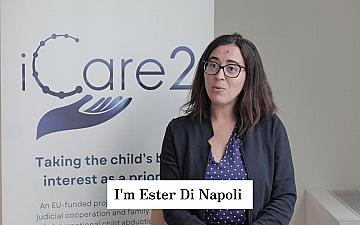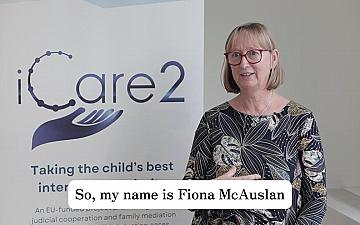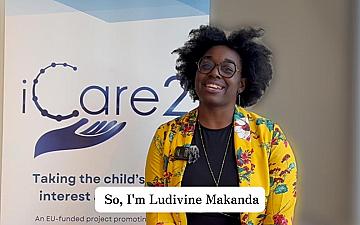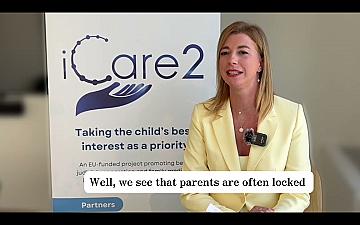The anti-Roma manifest of the Bulgarian media leads to disinformation, as it feeds a hostile attitude among the majority, normalises established practices of ethnic exclusion and discrimination, and facilitates racial hatred and xenophobia. Media hostility is mostly demonstrated through the public dissemination of hate speech and fake news, leading to mass misinformation, both among the majority and the minority.[i]
Romaphobia insinuations find expression mainly in social networks through radical Facebook groups and forums, also such as with an entertainment focus and even some of political figures.
Political representatives exploit diverse channels in which they spread anti-Roma perspectives to incite anti-Roma activities and even promote their political campaigns. Standout names in the political context are Krasimir Karakachanov, Volen Siderov[ii] and Angel Dzhambazki, and from the parties - VMRO[iii] and the parliamentary group Vazrazhdane[iv], which are active and recognisable within the society.
Another field for cultivating disinformation is Bliz.bg as one of the most dominant anti-gypsyism network in Bulgaria. It ranks among the top 10 most visited web pages and is known precisely for spreading distorted and false information.[v] "Masters of the air" broadcasted on Nova TV is the most popular comedy show, which also has anti-gypsy manifestations.[vi] Nova TV is ranked the highest in national television, and accordingly has the widest audience. The mocking narratives used by the production even spread to the YouTube platform, which is the second most used in our country. Along with the show, humorous Facebook pages, although less radical, contribute to the overall anti-Roma ignorance, spreading extremely caricatured stereotypical images.
The media focus in Bulgaria has demonised the image of the Romani people around the notion of Roma criminality, their primitive and parasitic nature, leading to social unsuitability. Ethnic hostility tends to be driven by cultural, moral and economic competition. In circumstances of social and economic crises, the mass media uses as a tool the stereotypical evil Roma image they created themselves in the first place to contrast it with the good image of the Bulgarian.
This is one of the many anti-gypsyism narratives, embodying the Romani people in the role of villains, which contrasts with the suffering and sacrificial bulgarians. One way to achieve this contrast is to condemn the Roma's mechanisms for dealing with poverty as immoral and inhumane, and to characterise poverty as a self-inflicted and impure vice because they “refused to get an education and find work”. A similar narrative is the image of the Roma as moral parasites who abuse welfare benefits instead of working. This motive is intertwined with that of Romani women who reproduce, motivated solely by economic benefits. The constructed image of illiterate Roma mothers, unable to count their children, confirms this. In contrast, the poverty of the ethnic Bulgarians is placed on a pedestal as a virtue and sacral self-sacrifice, caused by unjust circumstances.
One of the most widespread elements of anti-gypsyism is the topic of Roma’s criminallity. Roma usually commit thefts, drug sales, robberies, which are often a reflection of the spiral of poverty in which they have fallen. However, the focus falls on more serious crimes, which the media tends to overexpose. This leads to disregarding the presumption of innocence and even grossly violating the human rights of the Roma by publishing actual photos of the suspects.[vii] Thus, the criminalisation of the Roma image supports the false notion of innate Roma criminality and maintains resentment among the majority.
Suggesting the unfitness and inability of the Romani people to fit into social norms frames yet another anti-gypsyism narrative that sets up the majority that the Roma deserve to be isolated from society. This practice causes the stigmatisation of the Romani ethnic group, which becomes vulnerable and easily used for political purposes. Disinformation anti-gypsyism is a sign of the tendency of the social structures in Bulgaria to work in favor of the majority at the expense of the minority.
[i] Publication on the project Caring for the Truth: Overcoming Anti-Gypsyism by empowering Roma to counter disinformation and fake news in Bulgaria, https://cega.bg/wp-content/uploads/2022/07/BG_CARE-4-TRUTH_book_web.pdf
[ii] https://www.svobodnaevropa.bg/a/31105739.html
[iii] Krasimir Karakachanov, "Concept for changes in the policy for the integration of the Gypsy (Roma) ethnic group in the Republic of Bulgaria and the measures for their implementation", http://www.vmro.bg/media/filer_public/15/1c/151c8d...
[iv] https://vazrazhdane.bg/programa/vatreshna-politika
[v] Survey by Similarweb, https://www.similarweb.com/top-websites/bulgaria/c...
[vi] https://www.facebook.com/smiah.bg/photos/basw.AbrLlb89ekG44aS23jwth0Uln_Ezgz0NWNSLDD9C8bxsYJXEOId_sYQJjNNGNHVAx9iRfLbfaMADdo3P0KPot9ne_KYqvzCbPqxo80W8UxUZLVToRRGMadjjKhpRdz5yk07drheGbMmfzZdsuafeFwdIT-7n1GmKDvyBMV87YLzS8-A8WV6GCBoe9yazjPG7y5pDVIV3biWy4OCjBhgY-7AG.703792496310411.703779922978335.1211384035578587.252579268186195.825089894213095.306726266032302/703779922978335/?type=1&opaqueCursor=AbpxXP7gpiKekADMpowi6xKzFJfpZEyZAodqeEgZBKP8qWxGKZzam-6fRpkOeSWM_S3ns0szHHst2ZXeGpSFO4NzIUDpPv-43yLX_Jk9AqtOB_YiOnirI81vuY_-2HE0tNAxWEYESUML6shJ_i-cGoVTs6Q4tUAxlk52eGaPBNslnfl9LBZnQ3oXZkrUD9mP6c46uqz-YbCToO3jCMsgxAZ7_9MglJnB6IBPDcYP1FAACkcLNNCpUdXIf_2pushJK5Rm1RD_2HonFR3RQVdcFzb1yR7vkEILeaPnkmSt_mevzf5lkj0Kl_YFlJUj4Gp9MtDzLgHmHLJfy1hGSlkfE1C7uPSz-_k-101czIhsJeR8TE42bi4lOnOcRJWPefqhfcsk_N-XURIdMKEGiddyVjV-BqivDG5K3tmbbEzqN1Xvr4aDjbTLmAuGMZIPmBlZzy9o5J5E5UYjE3fx4m7uNCEzpUIa3HMu3cLh7Ei7Lpnnj_ww0lCyNFTi2Oifh39xdgJi8SqNLz8dw2W3YKRqkjFNSVTzIDaTQMWEgZdh9Lq7yVukehYna9zWkNaSFKopQm4np_MWZYZ0A4paxHYnirbt3r2cBhaiFqQDKrgEUa4jKQ&theater
[vii] https://fakti.bg/krimi/253911-cigani-mlatiha-zverski-dvama-v-dobrichko-selo-video









